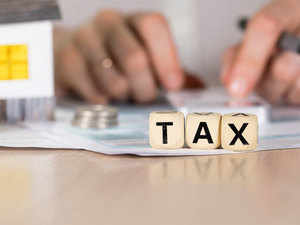 Getty Images
Getty ImagesIn fact, tax payers can prepare to file their ITR by doing four things. These are: (i) collect tax deducted at source (TDS) certificates from various deductors, (ii) collect tax-saving investment proofs, (iii) collect information about incomes you have earned from sources other than salary, and (iv) pay taxes (if any) that are due.
Here is a look at each of these in detail.
- Collecting TDS certificates
Different types of TDS certificates are issued by different entities.
- Your employer has to issue you Form 16, a TDS certificate containing details of the total tax deducted during the financial year 2019-20, the total amount of salary paid to you, tax-exempted allowances such as house rent allowance (HRA) etc. Further, if you have declared tax-saving investments to your employer to avoid excess tax deduction on your salary income, then such investments will be reflected in the part B of your Form 16.
- Similarly, if TDS has been deducted on the interest income paid/accrued to you on fixed deposits or recurring deposits with a bank, then the bank is required to issue you Form 16A.
- If you have rented out your house property where the monthly rental exceeds Rs 50,000, then your tenant would have deducted tax on the rent payable to you. If so, the tenant would have to issue you a TDS certificate in Form 16C.
- Collecting tax-saving investment proofs
Therefore, you should collect all the tax-saving investment documents, relevant for FY 2019-20, to be claimed while filing ITR. If you miss out on claiming any deduction and/or tax-exemption from the gross total income, then you will end up paying higher taxes. The tax saving deadline is the last date for making specified investments, expenditures on which a tax break can be claimed.
- Collecting information about other incomes
Though the income received by you during the year could be tax-exempt or taxable depending on the nature of the income, remember while filing ITR you are required to report all the types of incomes.
- Paying taxes that are due
As per a Central Board of Direct Taxes (CBDT) notification issued on June 24, 2020, individuals with self-assessment tax liability exceeding Rs 1 lakh for FY 2019-20 should pay their taxes on or before July 31, 2020. If the taxes are paid after this date, penal interest will be levied at the rate of 1 per cent per month or part of the month under section 234A of the Income-tax Act, 1961.
If your self-assessment tax liability exceeds Rs 1 lakh and you still have not paid your tax dues, then you should pay it as soon as possible to avoid paying a hefty penal interest.
(Your legal guide on estate planning, inheritance, will and more.)
Download The Economic Times News App to get Daily Market Updates & Live Business News.
Read More News on
(Your legal guide on estate planning, inheritance, will and more.)
Download The Economic Times News App to get Daily Market Updates & Live Business News.











 Get Unlimited Access to The Economic Times
Get Unlimited Access to The Economic Times
